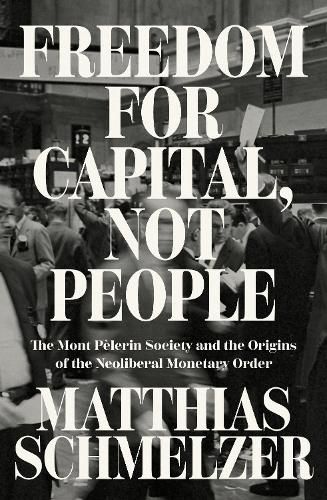Readings Newsletter
Become a Readings Member to make your shopping experience even easier.
Sign in or sign up for free!
You’re not far away from qualifying for FREE standard shipping within Australia
You’ve qualified for FREE standard shipping within Australia
The cart is loading…






Both a rigorous intellectual history of neoliberalism and an innovative account of the economic transformations that shook the post-war period, Freedom for Capital Not People charts the theoretical developments responsible for reshaping today's world economy, unleashing capital against democracy. Based on new archival sources, it shows a neoliberal camp marked by ideological divisions as well as consensus, as the Mont Pelerin Society charted its course from fervent support for the gold standard to an embrace of free-floating exchange rates. The resulting debates were not merely of academic interest. By the turn of the 1970s, this controversy found expression at the highest levels of international monetary policy, with world-historical consequences. This is the definitive account of the interests, priorities, and political imperatives driving the intellectual figures whose influence has dominated the past half-century of global capitalism. The excavation of their recent past illuminates and politicizes contemporary debates on currency.
$9.00 standard shipping within Australia
FREE standard shipping within Australia for orders over $100.00
Express & International shipping calculated at checkout
Both a rigorous intellectual history of neoliberalism and an innovative account of the economic transformations that shook the post-war period, Freedom for Capital Not People charts the theoretical developments responsible for reshaping today's world economy, unleashing capital against democracy. Based on new archival sources, it shows a neoliberal camp marked by ideological divisions as well as consensus, as the Mont Pelerin Society charted its course from fervent support for the gold standard to an embrace of free-floating exchange rates. The resulting debates were not merely of academic interest. By the turn of the 1970s, this controversy found expression at the highest levels of international monetary policy, with world-historical consequences. This is the definitive account of the interests, priorities, and political imperatives driving the intellectual figures whose influence has dominated the past half-century of global capitalism. The excavation of their recent past illuminates and politicizes contemporary debates on currency.